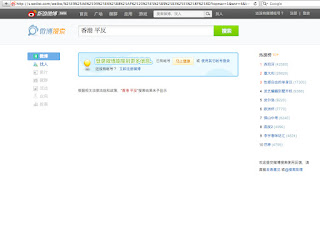These screenshots, taken on July 7, 2012, show that for searches for Bo Xilai (薄熙来) Bo Guagua (薄瓜瓜) and Gu Kailai (谷开来) Baidu claims to have found 765k, 12k, and 8.4k results, respectively. In each case, however, Baidu only returns only one result - its own Baidu Baike article.
This represents an increase in censorship from last May, when Baidu was also returning results from a white list of about a dozen websites controlled by the central government and the Communist Party.

This represents an increase in censorship from last May, when Baidu was also returning results from a white list of about a dozen websites controlled by the central government and the Communist Party.






